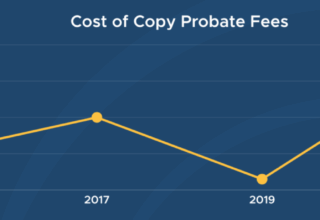
Published on Friday 16 May 2024, the Law Commission’s long-awaited report marks the most significant reform of wills legislation in over 180 years. With many estate planners waiting with bated breath to see what changes were to come, BEST has broken down the main takeaways for you.
In fact, attendees at our Inspiration & Innovation Conference 3.0 were given an early glimpse into what was on the horizon. Just three days before the report was published, Ian Bond, a key member of the Law Society’s Wills & Equity Committee, joined us as one of our keynote speakers and offered timely, insightful commentary on the expected reforms. For many, it was a tantalising preview of what was to come.
Now, the details are here, and they are substantial, it is worth remembering that these are only the initial proposals and we aren’t expecting to see any big changes made in the near future. So for now, here’s what you need to know:
Wills from Age 16
One of the headline changes means that individuals will be able to make a valid will from the age of 16. This lowers the threshold from the current age of 18 and reflects a modern view of young people’s ability to make significant legal decisions.
A New Approach to Testamentary Capacity
The draft Bill includes clearer rules for assessing mental capacity, including scenarios where a person gave instructions while they had capacity but later lost it before the will was formally executed. This could bring welcome clarity for professionals dealing with clients with fluctuating capacity.
Welcome to the Digital Age: Electronic Wills
Yes, electronic wills are officially being brought into the legal fold, albeit with strict safeguards. A “reliable system” must be used to verify the testator, protect against unauthorised alterations, and distinguish the original from any copies.
Flexibility Over Formalities
The courts will be given the power to validate a will even if the usual formal requirements (e.g. signatures or witnesses) haven’t been fully met, so long as the document clearly reflects the testator’s true intentions. This “dispensation power” offers flexibility but will need careful navigation.
Tackling Undue Influence Head-On
In a move that could reshape contentious probate cases, courts will be able to presume undue influence where there’s evidence of suspicious circumstances. The onus will then be on the other party to prove otherwise. This could be a game-changer for protecting vulnerable testators.
Smarter Rectification and Interpretation
The courts will have greater power to rectify mistakes and interpret ambiguous wording, even admitting extrinsic evidence (including the testator’s intentions). This could help reduce disputes where wills are unclear or misworded.
Goodbye to the Wills Act 1837
It’s official: the 1837 Act is to be repealed and replaced by the new Wills Act 2025. The legislative scaffolding of our profession is being rebuilt, something no estate planner can afford to ignore.
So, What Does It Mean for You?
We know that the above are just proposals at this stage. Speaking about the report, Sarah Sackman KC MP, Minister for Courts and Legal Services MoJ UK said:
“The government has welcomed the report as an important and timely review of the existing law, and will be giving the report detailed consideration”
For members of BEST, these changes may mean updating processes, rethinking how we talk to clients, and embracing a more digital and flexible approach to will writing. But they also offer the potential for new opportunities, to better serve clients, reduce disputes, and modernise a system that has, frankly, been long overdue an overhaul.
BEST Foundation is here to guide you through these changes as and when things progress. We’ll continue to provide practical tools, expert commentary, and support to help you navigate what is looking to be the most significant moment for our profession in a generation.


